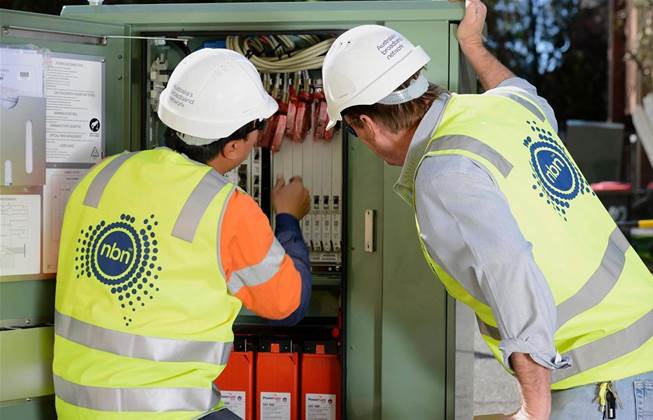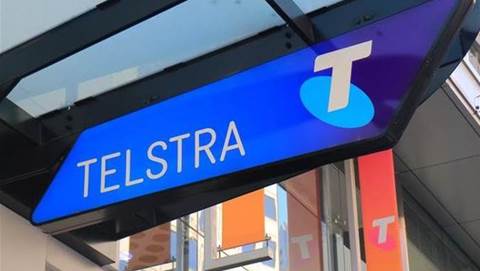NBN Co has floated a second surprise incursion into internet providers’ remit by offering to manage the amount of bandwidth they buy and automatically sell them more.

The proposal, revealed in responses to the NBN wholesale price review, would hand NBN Co control over a variable cost that has previously been linked to speed and performance issues for NBN users.
Connectivity virtual circuit is a fee levied by NBN Co for offloading traffic from the NBN to the retail service provider’s (RSP’s) network.
It remains an expensive input to the cost of NBN plans; while newer plans come with a minimum amount, RSPs are forced to buy more (called “overage”), at $8 Mbps/month, to meet growing data use and plan speed promises.
Outside of the amount of CVC that comes bundled with newer plans, NBN Co has no control over whether or not RSPs buy extra.
It’s been left as a choice for RSP’s to make to satisfy the needs of their users.
However, CVC has long been seen as a way for NBN Co to keep retail prices rising, growing average revenue per user (ARPU) and therefore strengthening NBN Co’s long-term financial position.
That is likely to have led NBN Co to canvas the prospect of taking a more active role in bandwidth management beyond its own network boundary.
“Would your organisation support the development of automated CVC provisioning for use with CVCs carrying discount AVC/CVC bundles? If so, what provisioning rules would your organisation propose for automated CVC provisioning?” NBN Co asked in its price review.
NBN Co's commercial general manager Ken Walliss said the company "wanted to see if there was an opportunity to explore whether there was any benefit in providing RSPs with the option to automatically change the CVC size every time an AVC is added or removed, or other increased automation that may help RSPs with CVC provisioning."
"This question is part of the input we are seeking from RSPs on operational changes nbn can make to better support RSPs," he said.
RSPs, though, appeared underwhelmed at the prospect.
“RSP’s are required to purchase CVC. Removing the ability of the RSP to control how that CVC is then provisioned would be completely outside normal commercial principles,” Vocus said in commentary obtained by iTnews.
“Allowing NBN Co to decide on the RSPs’ behalf the volume of CVC acquired by the RSP will lead to a lack of control and additional cost for the RSP.
“Additionally, a change in CVC speed generates several required technical changes on the RSP side which NBN Co would be unlikely to be able to effectively and efficiently orchestrated under a mechanism where NBN Co adjusted CVC, leading to a poor end customer experience."
Aussie Broadband said it had already invested in its own bots to monitor CVC consumption and to place orders with NBN Co when more bandwidth was required.
“Our CVCBot is constantly (every hour) assessing the amount of CVC purchased, the number
of customers in that CSA [connectivity service area], and the utilisation trends based on day of week,” Aussie Broadband said in its own submission to NBN Co.
“The CVCBot has two modes, liberal and conservative.
“The liberal mode provisions CVC freely and quickly when we are under the included CVC threshold.
“The conservative mode is for a CSA which is over its included CVC allocation, and moves slower to do upgrades (buy overage) in case the peak is only a once-off.
“Typically the conservative mode will take 2-3 days to do an upgrade, whereas the liberal mode will make adjustments hourly if necessary to ensure there is no CVC congestion.”
Aussie Broadband said it could “see an issue with NBN Co automatically adjusting CVCs as it would require a mechanism to signal the RSP network that CVC shapers need to be adjusted.”
“It’s not an impossible problem, but one that would need to be solved for the system to be successful,” Aussie Broadband said.
However, Aussie Broadband said that bandwidth allocation and purchases should remain a decision for RSPs.
“Ultimately we believe it should be up to the RSPs to provision enough bandwidth for their customer base and ensure a good customer experience,” it said.
“Some providers may wish to provide congest their CVC and therefore provide a low-price product, and others (such as ourselves) will continue to specialise in a high-quality service.”
Other RSPs were also approached by iTnews for comment on the auto CVC buying power sought by NBN Co but did not respond by the time of publication.
NBN Co’s proposal to handle CVC provisioning on RSPs’ behalf is the second of its type in the NBN wholesale price review.
As reported by iTnews and CommsDay earlier this month, another proposal flagged by NBN Co was to run traffic prioritisation on RSPs’ behalf.
This would be used to recognise video traffic, in the first instance, and enable NBN Co to create “differentiated” charging for video streaming services like Netflix.
That proposal was widely condemned, in part because it took control away from RSPs.
Decisions on traffic prioritisation and shaping have traditionally been left up to RSPs. Many operate network equipment that helps them manage traffic flows between their network and the NBN.
NBN Co effectively proposed to take decisions about traffic prioritisation out of RSPs’ hands, and to charge them for it.

















.png&h=141&w=208&c=1&s=1)

